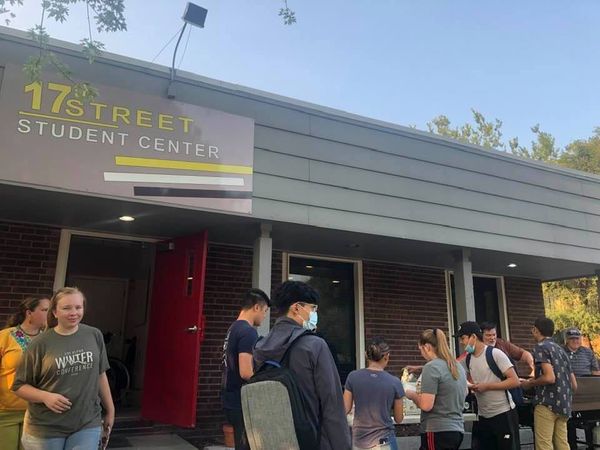
What Is the Metaverse
Metaverse” is a new word, and we’ve only heard it because of Mark Zuckerberg’s recent accouncement that Facebook’s parent company is changing its name to Meta. The new name is a nod to the future. Meta is positioning itself as the first mover of a new digital universe.
The metaverse is not a digital world. It’s a digital world of worlds through which people can travel seamlessly, retaining their appearance and digital possessions wherever they go. These worlds do not merely exist in VR (virtual reality), but also layer onto physical reality through AR (augmented reality).
What does the metaverse mean for campus ministry and Christians?
When Facebook debuted in 2004 and the iPhone released in 2007, we didn’t know what the future held. We can’t catch up a decade after the metaverse reshapes culture. We must prepare disciples now, knowing the metaverse will only exacerbate the current problems created by a (believe it or not) less invasive internet.
Three themes we should start emphasizing today, so we can form resilient disciples of tomorrow.
1. Givenness of Identity in a Customized World
If you think society is struggling with questions of identity now, get ready. Individuals will be able to express themselves however they want through fully customizable avatars in the metaverse.
What happens when we identify more with a virtual version of ourselves than with our real selves? People may conflate their God-given identity with the self-made identity they crafted in the metaverse. The imago Dei is about to encounter the imago meta.
In a world where every aspect of our identity will be completely customizable, celebrating a received identity—given by God to be his human image-bearers, made with flesh and bone, male and female, for the cultivation of the world—will be radically countercultural.
2. Goodness of Creation in a Disembodied World
We will live more of our lives disembodied, either as avatars in VR spaces or holograms using AR technology. The separation we feel—between our physical bodies and surroundings, and our virtually expanded consciousness—will grow. It will be easy to see the infinite possibilities of our virtual world and bodies as better and more real than the physical world.
As disciples of Jesus, we insist upon the goodness of our physical world and bodies. Followers of Jesus must resist the constant digital connection, forming communities where people intentionally disconnect from virtual reality to be present with others: look them in the eye, give them a hug, and simply be with them. This will be countercultural in the best way.
3. Limits as Grace in a Limitless World
The metaverse will present us with the opportunity to experience glimpses of power only God has. Readiness of information will give us a glimpse of being omniscient. The ability to create worlds and identities will give us a glimpse of being omnipotent. Conquering of geographic boundaries will allow us to be wherever we want to be at any given time, approximating omnipresence. Our futuristic tower of Babel is luring us in with promises of limitlessness.
Disciples of Jesus will need to resist by embracing God-given limits. We can be a presence in our local communities, focus on the slow incremental growth of systems and structures that lead to people’s flourishing (both physical and virtual), and embrace the increasingly unfashionable phrase “I don’t know.” Our lives can manifest the truth that we can’t be everywhere, and we can’t be everything, and that’s a gift from the God who is.
Faithfulness on a New Frontier
While we can’t predict all the ways the metaverse will change us, we know that Christian witness is always countercultural. The metaverse may promise godlike power and knowledge, but like all idols, it will take more than it gives.
Like every technological innovation, the metaverse will bring both opportunities and threats. But if we begin the hard work of discipleship today, we might find resilient disciples of Jesus faithfully leading on the edge of a new frontier, working for the flourishing of everyone—physically and virtually—with confident humility in the face of monumental change.
This is a condensation of the full article “How to Prepare for the Metaverse” by Ian Harber and Patrick Miller, November 2, 2021 in TGC, (TheGospelCoalition.org). https://www.thegospelcoalition.org/article/prepare-metaverse/ and for more information: https://www.youtube.com/watch?v=gElfIo6uw4g&ab_channel=CNETPreview
















